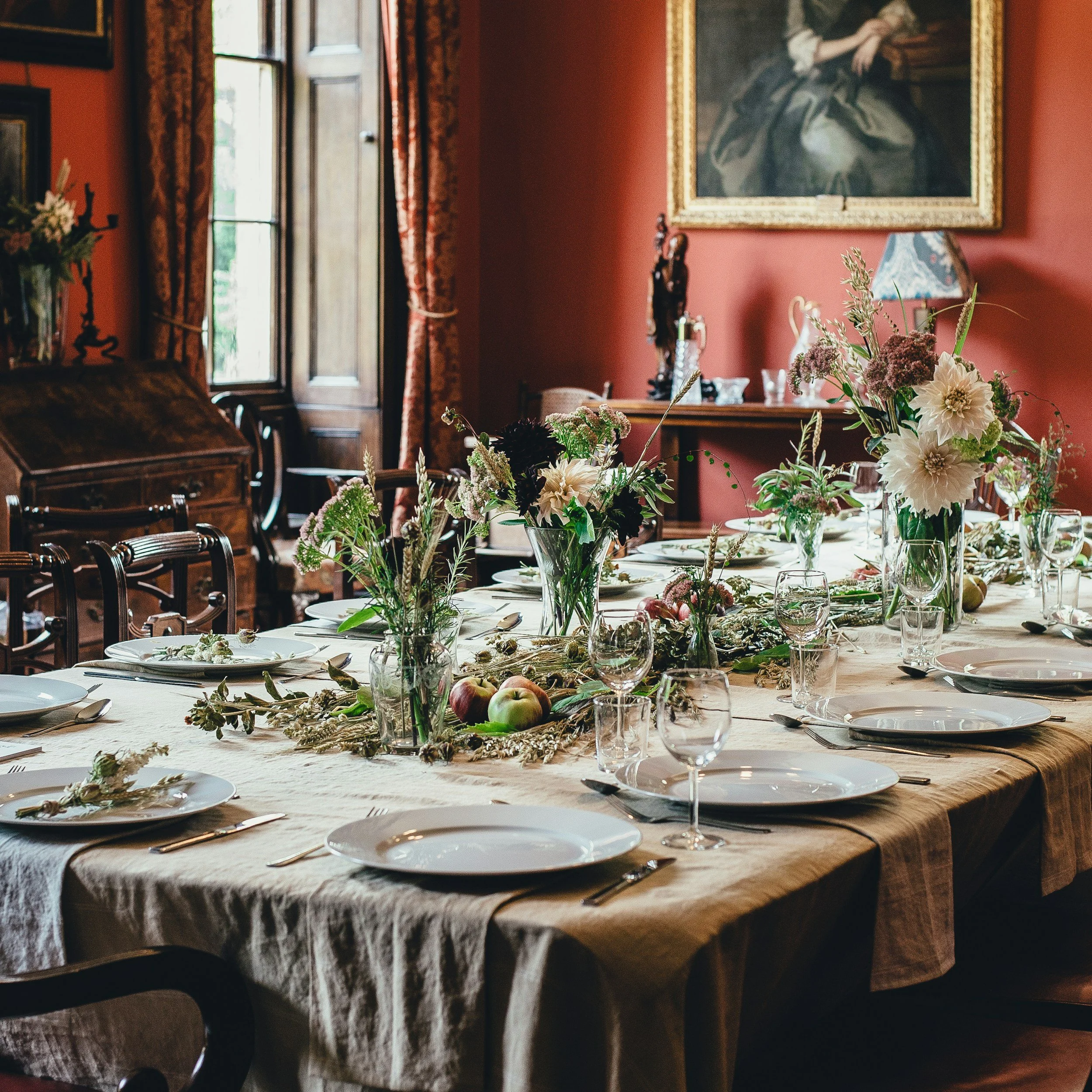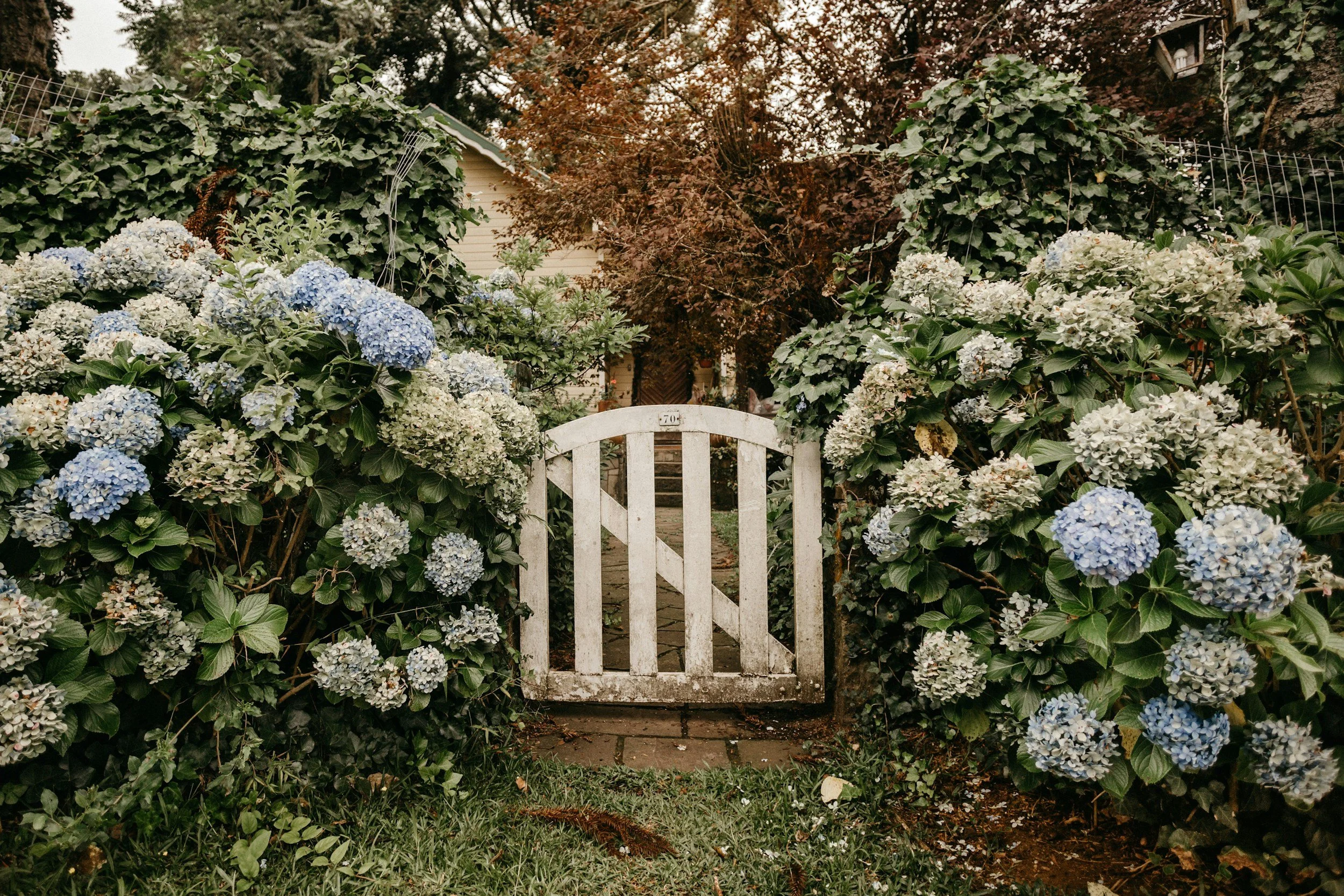What Remains Unnamed (#15)
Early September, 1912
The morning after a dance always carries with it a peculiar quiet, not from peace, but from all that was left unsaid between notes of music and movements of hands. I walked the garden paths early, before even the gardeners had stirred. The air held that tender chill particular to late summer's retreat. It felt like standing inside a held breath.
Lady Ameline arrived just after breakfast, her expression unreadable but her manner more direct than usual. She dismissed the maid with a flick of her fingers and closed the door behind her.
"You are wearing the same colour as last night," she said, seating herself without invitation. "Either you are growing predictable or you want to be remembered."
"Perhaps both," I said, pouring the tea.
She accepted her cup but did not drink. "There is a look in your eyes that troubles me. A woman does not look that way unless she is either about to flee or about to stay in a place she ought not."
I busied my hands with the linen napkin, smoothing what did not need smoothing.
"I am still where I have always been."
"Yes," she said softly. "And that is precisely the trouble."
We sat for a time in silence, the sort that presses rather than soothes.
"He was watching you," she said finally. "Yates. Even when he danced with Miss Sterling. Especially then."
I closed my eyes. Just for a moment.
"Does it matter?" I asked. "What good can come of it?"
"Good," she said with a wry smile, "is rarely the question in these matters. The question is whether you are willing to go on as you are, composed, admired, lonely, or whether you might allow yourself one true thing before the end."
"The end of what?"
"The season. The silence. Your life, if you are not careful. It is possible to go on for years like this and still miss the thing that would have made you feel most alive."
I rose then, unable to bear the press of her gaze. "You know what you ask of me."
"Yes," she said, standing too. "And I know you will not do it. Not yet. But I am asking anyway. Because I see what it costs you not to speak."
She left not long after, her footsteps quieter than I remembered.
Later, Lord Bergamot appeared in the breakfast room, belated and already irritable. He glanced at the clock, not at me, and muttered something about a delayed telegram. I asked whether he had received my note explaining my attendance at the dance. He waved the question away, saying he assumed I had gone — "You do so enjoy that sort of thing."
It struck me, not as revelation, but as the familiar weight of disregard, that he had not asked how it had gone. Whether I had enjoyed myself. Whether I had been well. There was no inquiry, only assumption.
I asked if he would be dining with me this evening. He gave a vague shrug, said something about not making plans so early in the day, and that he might have business at the club. There was no sharpness in it, only the dull edge of habit — the kind that does not cut, but wears away. Then he left for his club.
He is not cruel. But he is elsewhere in every room we share. There has not been a real conversation between us in months. Our quarters are at opposite ends of the house. We do not sleep in the same room. We have not warmed the same bed since our second year of marriage. I do not mind. I am not drawn to him. I never have been. There is no resentment in this, only a quiet truth. He does not move me, not in that way, not in any way that stirs the heart. And I have long stopped pretending that affection can be manufactured from gratitude alone.
He is twenty-five years my senior. I was twenty-four when I married him. I am twenty-nine now. My father had died the previous autumn, and with him, the last shape of my security. My mother died giving birth to me. There were debts. There were expectations. There were fewer choices than anyone likes to admit aloud. He offered stability. A house. A name that carried some weight. I took it. Not with gladness, but with grace. It was not a love match. It was survival. And I was grateful for it.
But I am no longer a girl trying to be safe. I am a woman trying not to be erased.
I remember, once, early in our marriage, I had fallen ill with a fever. It was not serious, but it kept me abed for days. He came to the doorway once, to inquire if I needed anything. I said I would like broth. He said he would send the maid. That was all. I do not think he meant to be unkind. But there was never a second visit.
And yet, he has never raised his voice to me. Never struck me. Though there have been moments — subtle, public, unforgettable — that skirted the edge of humiliation. A careless remark. A dismissal among company. Not violent, but visible. The kind of cruelty that passes for indifference. He gives me allowance, a staff, a roof, invitations. To the world, he is a dutiful husband. To me, he is a page I have long since stopped trying to read.
When the door closed behind him, I stood for a long moment in the stillness. There was nothing to be said. Nothing to be rescued from the silence he left behind. And so, as I so often do when the walls of this house feel too narrow for breath, I returned to the garden.
The roses are beginning to brown at the edges. Even the blooms tire of their own beauty. I paused near the old elm by the garden gate, the one beneath which he and I had stood in the rain months ago. I remember how he approached slowly, hat in hand, rain pooling at his shoulders, and stood beside me beneath the elm. Not too close, not touching, but near enough that the air between us felt altered. We spoke of roses and leaking conservatories, of nothing that mattered and everything that did. His coat, dark and rain-heavy, clung close to his frame. He removed his hat with quiet care. We stood beneath the dripping branches, speaking of nothing, feeling everything. What passed between us needed no name, no movement. It was simply there, like the rain — soft, steady, and impossible to ignore.
Even then, something had begun to smoulder, quiet and unseen.
I stepped into the conservatory, the air warm and faintly perfumed with orange blossom and old paper. The memory of this room is heavier now — not because of the plants or the warmth, but because this is where he stood and said the one thing I had spent all year pretending I could not hear. Late July. The windows open. The scent of lavender curling in from the terrace.
He had come looking for Lord Bergamot, or so he said. But his eyes told another story. He told me he had stopped looking for the right moment to speak. That silence had become too loud. That he had tried not to feel it. But that I was always where he needed me to be, even when he was not looking.
He said my name. My true name. Not the formal title, not the one used by servants or hosts. He said it like it meant something. And in that moment, I forgot every rule I had ever been taught.
I did not touch him. I did not answer him, not really. I did everything but confess what I had already buried beneath every breath.
And yet, he knew.
I sat a while in the corner near the bay window, hands folded in my lap, letting the memory settle. There was nothing new here. And yet everything was different. I have more memories of Yates in this house than I do of Lord Bergamot. He is everywhere. The garden paths, the conservatory air, the echo in the library where once, as I reached for a book too high, I felt the warmth of his presence just behind me, close enough to steady me, but he never did. He never touched me. And yet the space where he might have is the one that haunts me still.
The sky was pale with the promise of rain as I ventured back into the house. A bird startled in the hedge. Everything felt as though it were waiting.
Yates will not come calling. Not today. Not unless summoned.
And I cannot summon what I cannot name. To ask would be to admit. And I cannot admit what must not be known.
But I feel it.
Every time I wake with the weight of his words heavy on my heart.
He said he would have cherished me. Had he been given the chance.
And now I live with the cruel echo of that sentence, not because it is untrue, but because it might have been.
What remains unnamed is a secret. One spoken only in glances and in rooms where no one else dares follow. Lady Ameline suspects, yes, but even she does not know the fullness of it. Yates and I have spoken around it, walked alongside it, let it breathe in the silences. But we have never said its name aloud.
And until we do, it can still be called nothing. Nothing, and yet everything. Because to name it would be to invite ruin.
And despite all of this, still, I feel it. Every hour. Every breath.
As though it were already mine.
—L.B.
You Might Also Love…
Read all of The Violet Letters here:
Copyright Notice:
© 2025 Lady Bergamot's Library. All rights reserved.
This work is the intellectual property of Lady Bergamot's Library (Jessica Jones) and may not be reproduced, copied, pasted, or rewritten without prior written permission.
Links to this content may be shared, but the content itself may not be copied, republished, or distributed elsewhere.
All content on this site, including but not limited to text, images, and original works, is protected by copyright law.
































I was in fourth grade when I found A Series of Unfortunate Events. I talked about them on AIM with my best friend, devoured each new hardcover, and felt like someone finally trusted me with something strange and brilliant.